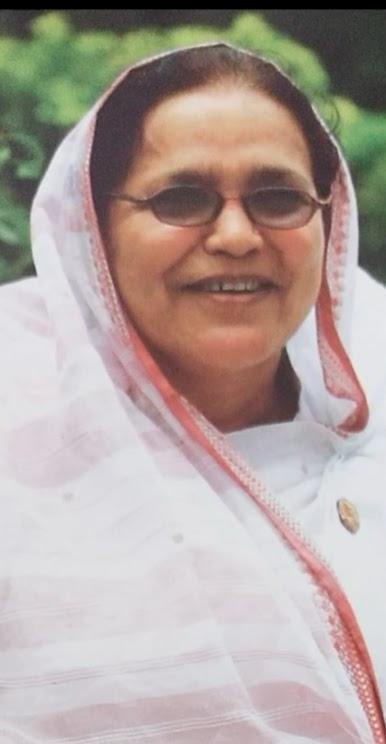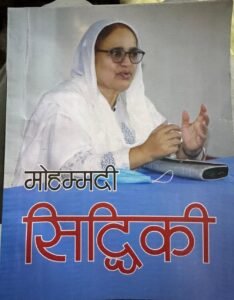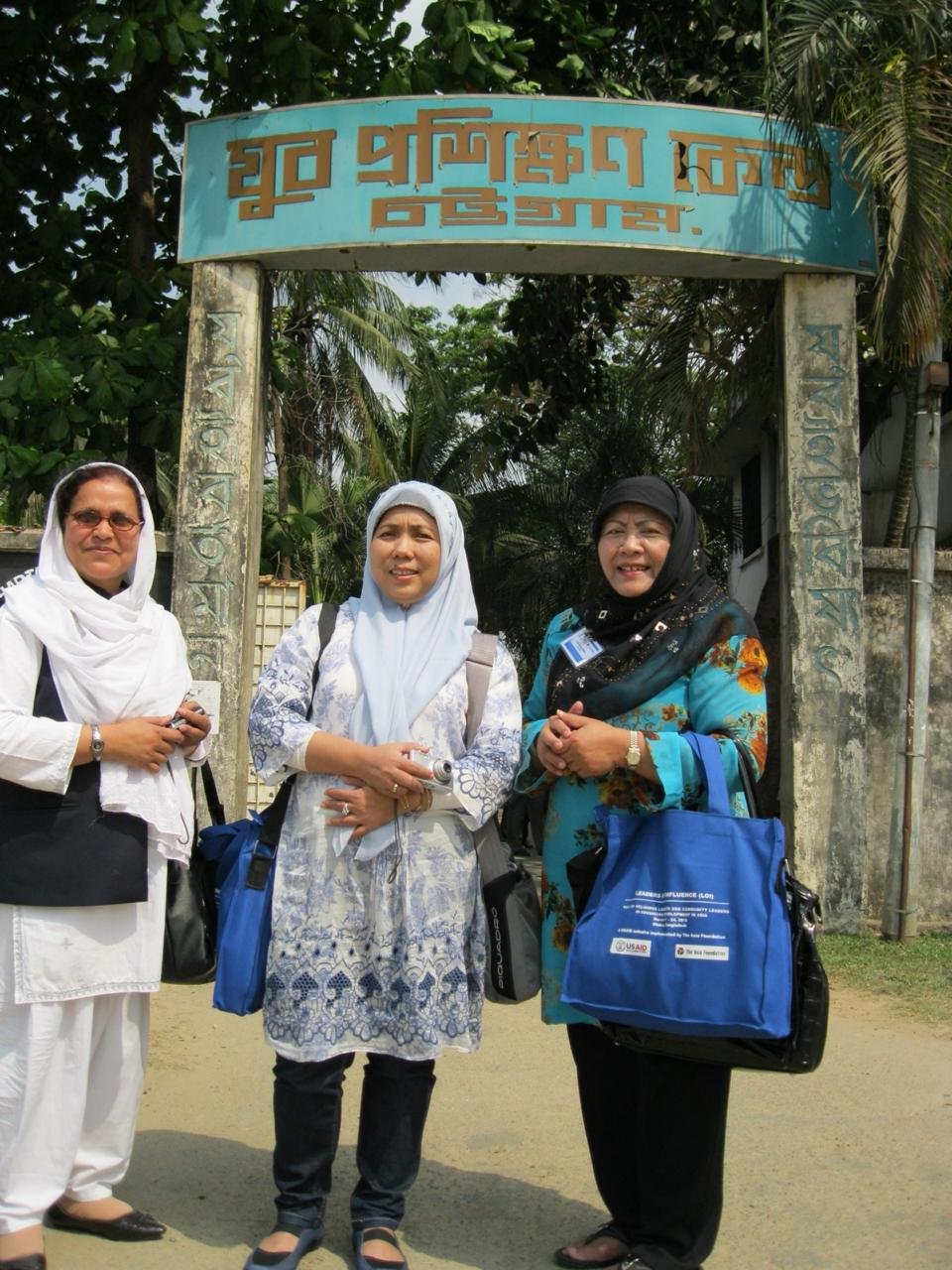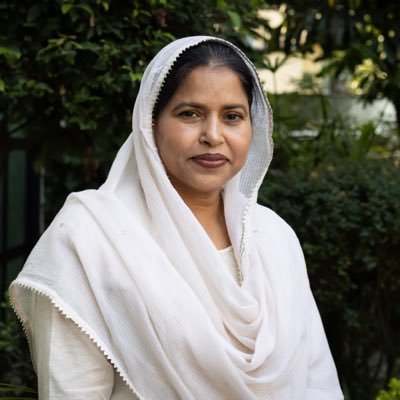
Social Transformation Through Politics in Nepal: An Inspirational Journey of Mohammadi Siddiqui
Muslim women’s presence in Nepal’s politics is largely underrepresented. In Nepal’s political history a figure that stands out in the context of Muslim women is Mohammadi Siddiqui (Picture above). Her presence in Nepal’s politics paved the way for a much needed representation of Muslim women in the political sphere. Born on 11th March 1959, Mohammadi Siddiqui was the fourth child to their parents. When Mohammadi was growing as a child, her father is said to have often expressed to her saying “dear daughter, you came in our life as the light of God ”.
Like for many children, Mohammadi’s dream was to become a doctor when she grew up, not knowing where her destiny was going to take her . She grew up in a time in Nepal when Muslim girl’s education was barely encouraged. Despite societal prejudice,Mohammadi was sent to school. However, after completing 10th grade, her education was halted. In her adolescent age, she heard people saying that “daughters should not be sent to college after they grow up” and that, “daughters cannot take part in any activities like boys”. She wanted to challenge these patriarchal norms that were imposed on women . When she reached the age of 18, her family arranged her marriage with Mohammed Suleman Siddiqiui, resident of Nepalgunj, Banke.
After marriage, Mohammadi’s life became busy as a “Homemaker”, taking care of the family and raising her three children. Mohammed Suleman, her husband was an active worker of Nepali Congress, a political party which was banned during the Panchayat regime(It was a hierarchical system of councils, or panchayats, that extended from villages to the national level). In 1990, a people’s movement led by Nepali Congress (NC) and Unified Marxist Leninist (UML) forced the king of Nepal to restore multiparty democracy. When the country was celebrating, an unexpected tragedy occurred in Mohammadi’s life. She lost her husband at the age of 32. She had to face extreme challenges of managing her family as a bread earner all of a sudden.

A book on Mohammadi Siddiqui (Picture shared by the author)
In 1997, Nepal was preparing for the first nation wide local elections under multiparty democracy and political parties were in search of ‘good candidates’ in order to represent their party . A few close friends of Suleman approached Mohammadi and offered her to contest the ward (local level) election. This came as a huge surprise as she never thought of entering politics. After some initial hesitation, she accepted the offer and contested the election as the only female candidate in a ward largely resided by the Muslim community. This was a turning point in her entry into politics. She won the election and became a board member of the Nepalgunj City Municipality, actively taking part in the development of the city. She was championing the rights and inclusion of marginalized communities, particularly women, through her interventions and initiatives. In the second local election, the party fielded her to run for the Deputy Mayor position, however unsuccessfully.
Around the year 2000, the armed conflict led by the Communist Party of Nepal, Maoist, had escalated and political parties’ activities gradually weakened. It was then, Mohammadi decided to establish an alternate platform to advance Muslim women’s rights. Before establishing her own organization she was General Secretary of a local NGO named Nari Kalyan Samaj (Women Welfare Society). In 2003, she established ‘Fatima Foundation’, the first non-governmental organization in Nepalgunj City which would implement targeted programs for Muslim women as well as other backward communities. In the following years, the Foundation became a prominent forum to raise public awareness on women’s rights, education, health and economic empowerment.
Mohammadi believed that religion should be seen as the foundation of Muslim women’s rights and liberation instead of as an institution of their oppression. It was widely believed by many in Nepal at that time that Muslim backwardness was due to their indifference to modern education. To address this tactfully, Mohammadi started to organise Muslim religious leaders for them to talk about rights of Muslim women to make it an acceptable issue to start with. She also started trainings for religious leaders and teachers on the issue.. She arranged translation of relevant Quranic verses in local languages to educate Muslims and the larger society about the values of tolerance and justice as enshrined in the holy book. Through the Fatima Foundation, hundreds of Muslim girls got the opportunity to learn about their legal rights, accessing education and vocational training. Mohammadi, recipient of the Ashoka Fellowship, established national and international networks for the continued support to the work led by her Foundation.

Mohammadi (First from the left) during one of her international visits
Following the peace process to halt the resistance led by the Communist Party of Nepal, Maoist , in 2008, Mohammadi was elected as the member of the first Constituent Assembly (CA) of Nepal which would also serve as the national parliament. The CA was tasked to draft a new constitution for the country. As a member of the Constituent Assembly and as a parliamentarian, Mohammadi contributed immensely to the work of relevant committees, to ensure that the rights and justice for the marginalized and underrepresented communities, particularly women, would be enshrined in the new constitution. Unfortunately, the first CA was dissolved after four years without delivering the constitution due to complex political reasons. Mohammadi continued her activism to fight against inequality and discrimination against women, focusing on the work of Fatima Foundation until she passed away on 25 April 2021.
While Mohammadi dedicated herself to the advocacy for the rights and justice of women, her life was not without struggle and challenges. In a society of strong patriarchal norms, Muhammad faced organized opposition, and defamation attempts by orthodox elements as well as political rivals, including attempted Fatwa (Religious legal opinion) against her work. However, she bravely stood firm to the cause of human rights, social justice and women’s protection. Mohammadi was a tall figure among the Nepali women activists.
(The views expressed in this article are the author’s own. Content can be used with due credit to the author and to ‘Zariya: Women’s Alliance for Dignity and Equality’)
References
The first picture in the article is of Mohammadi Siddiqui
- Mohammadi Siddiqui , NGO Federation, 2022 (Book).
- The information in the article above is written by anecdotes shared by local journalists and Mohammadi’s close ones with the author, because of the absence of much literature on her, so far.
About the Author:

Ms Mohna Ansari is a celebrated human rights activist. She is the first and the only female attorney from the Muslim community in Nepal and the first one to serve as a member at the National Human Rights Commission and the National Women Commission. She has worked with reputed international organizations likeAction Aid Nepal, UNDP and IDEA International in the areas of social justice, women empowerment and legal and institutional reforms. She is the recipient of prestigious awards including a national award by the President of Nepal. She has written extensively about various subjects related to human rights. She is currently working as a lawyer at the Supreme Court of Nepal.



